How do I become a biomedical scientist?
Biomedical science stands at the intersection of healthcare, biology, and technology, playing a crucial role in diagnosing diseases, developing treatments, and advancing medical research. It is a dynamic field that underpins much of modern medicine, from understanding the intricacies of human diseases to developing the next generation of therapeutic interventions. Biomedical scientists are the unsung heroes working behind the scenes, using their expertise to unravel complex biological puzzles and translate scientific discoveries into tangible health benefits.
Becoming a biomedical scientist requires a unique blend of rigorous scientific education, hands-on laboratory experience, and sharp analytical skills. It's a profession for those fascinated by the human body, driven by curiosity, and committed to making a difference in healthcare. The journey demands dedication, continuous learning, and a willingness to engage with cutting-edge technologies and scientific methodologies.
This comprehensive guide will walk you through the entire journey of becoming a successful biomedical scientist. We will explore the essential educational roadmap, the critical skills you’ll need to cultivate, effective strategies for gaining invaluable laboratory experience, and the diverse and rewarding career paths available in this ever-evolving and impactful field.
How Do You Become a Biomedical Scientist?
The path to becoming a biomedical scientist is structured yet flexible, allowing individuals to specialize as they progress. It begins with a strong foundation and evolves through various stages of education, practical training, and professional development.
The initial step involves completing foundational education, typically in subjects like biology, chemistry, or other life sciences during high school. This provides the necessary groundwork for more advanced studies. Following this, prospective biomedical scientists usually pursue a bachelor’s degree in biomedical science or a closely related scientific field. This undergraduate period is crucial for acquiring core knowledge and initial laboratory skills.
After completing a bachelor’s degree, the next phase often includes postgraduate training or internships. These experiences, whether in research institutions, clinical laboratories, or biotech firms, are vital for practical skill development and exposure to real-world scientific challenges. Depending on the country and specific role, certifications and licenses may be required. For instance, in the UK, registration with the Institute of Biomedical Science (IBMS) is essential for many clinical roles, while in the US, certification by organizations like the American Society for Clinical Pathology (ASCP) is often sought after.
Given the rapid advancements in biotechnology and medical research, continuous learning and professional development are not just recommended but imperative. Biomedical science is a field where new discoveries and technologies emerge constantly, requiring practitioners to stay updated through workshops, further education, and scientific literature. Contributing to medical discoveries and enhancing patient care is an incredibly rewarding aspect of this profession, offering a sense of purpose and the satisfaction of knowing your work impacts lives positively.
What Education and Degrees Are Required for Biomedical Science?
A solid academic foundation is paramount for a career in biomedical science. The journey typically begins with an undergraduate degree, which serves as the cornerstone of your scientific knowledge.
Bachelor’s Degree
Most entry-level positions in biomedical science require a Bachelor’s degree. The most common and direct route is a BSc in Biomedical Science. However, degrees in related fields such as Molecular Biology, Biochemistry, Microbiology, Genetics, Physiology, or even relevant fields like Medical Laboratory Science can also provide an excellent foundation. These programs typically span three to four years, depending on the country.
Core subjects covered during a bachelor’s degree program often include:
Anatomy and Physiology: Understanding the structure and function of the human body.
Cell Biology and Histology: The study of cells and tissues.
Microbiology and Immunology: Investigating microorganisms and the body's immune response.
Biochemistry and Molecular Biology: Exploring the chemical processes and molecular mechanisms of life.
Genetics: The study of heredity and genes.
Pathology: The study of disease, its causes, and effects.
Pharmacology: The study of drug actions and effects.
Biostatistics: Essential for data analysis and experimental design.
Laboratory Techniques: Hands-on training in various scientific methodologies.
When choosing a university program, it is important to consider accreditation. Many countries have professional bodies or health authorities that recognize specific university programs, which can be crucial for future certification or licensure (e.g., IBMS accredited programs in the UK).
Master’s or PhD
For those aspiring to research-intensive roles, specialized positions, or senior leadership in academia or industry, a Master’s (MSc) or PhD is often required or highly advantageous. These postgraduate degrees allow for deeper specialization and independent research.
Master’s Degree: An MSc can provide advanced knowledge in a specific area like Medical Genetics, Clinical Biochemistry, Medical Microbiology, Immunology, or Cellular Pathology. It typically involves advanced coursework and a significant research project. An MSc can be a stepping stone to a PhD or lead to specialized roles in diagnostics, research, or development.
PhD (Doctor of Philosophy): A PhD is a research-focused degree, usually lasting three to five years, culminating in a thesis based on original research. A PhD is almost always required for roles as a principal investigator, academic researcher, or senior scientist in pharmaceutical and biotechnology companies. It demonstrates a high level of expertise, critical thinking, and the ability to contribute new knowledge to the scientific community.
Optional specializations at either postgraduate or even advanced undergraduate levels can include:
Medical Biochemistry: Focusing on the chemical processes in health and disease.
Haematology: The study of blood and blood disorders.
Transfusion Science: Ensuring safe blood transfusions.
Virology: The study of viruses.
Neuroscience: Exploring the nervous system.
Toxicology: The study of poisons and their effects.
The choice of degree and specialization should align with your career aspirations, whether you envision yourself at the forefront of medical diagnostics, pioneering new treatments in a research lab, or contributing to public health initiatives.
What Skills Are Essential for a Biomedical Scientist?
To excel as a biomedical scientist, a combination of robust technical expertise and well-honed soft skills is crucial. These skills enable accurate experimental work, insightful data interpretation, and effective collaboration within scientific teams.
Technical Skills
These are the hands-on abilities required to perform scientific investigations and analyses:
Microscopy: Proficiency in using various types of microscopes (light, fluorescence, electron) for visualizing cells, tissues, and microorganisms.
Molecular Diagnostics: Expertise in techniques like PCR (Polymerase Chain Reaction), electrophoresis, Western blotting, and ELISA for analyzing DNA, RNA, and proteins.
Data Analysis and Statistical Software: The ability to process, interpret, and present complex scientific data using tools such as SPSS, R, Python, or specialized bioinformatics software.
Laboratory Instrumentation: Operating and maintaining advanced equipment like flow cytometers, mass spectrometers, automated analyzers, and cell culture apparatus.
Cell Culture: Aseptic techniques for growing and maintaining cell lines for research or diagnostic purposes.
Spectrophotometry and Chromatography: Techniques for analyzing the composition and properties of samples.
Analytical Skills
Biomedical scientists must be adept at critical thinking and problem-solving:
Interpretation of Complex Data: The ability to look beyond raw numbers, identify patterns, trends, and anomalies in experimental results, and draw logical conclusions.
Problem-Solving: Developing effective strategies to troubleshoot experiments, optimize protocols, and overcome scientific challenges.
Critical Evaluation: Assessing the validity and reliability of scientific literature and experimental methods.
Attention to Detail
Accuracy is paramount in biomedical science, where errors can have significant consequences:
Precision in Testing and Reporting: Meticulous execution of laboratory procedures and accurate recording of results.
Quality Control: Implementing and adhering to quality assurance protocols to ensure the reliability of diagnostic tests and research findings.
Communication Skills
Effective communication is essential for collaboration and dissemination of scientific knowledge:
Scientific Writing: Clearly and concisely documenting research findings in laboratory reports, scientific papers, grant proposals, and standard operating procedures (SOPs).
Oral Presentations: Articulating complex scientific concepts to colleagues, supervisors, and at conferences.
Collaboration: Working effectively with multidisciplinary teams, including clinicians, other scientists, technicians, and administrative staff.
Ethical Awareness
Working with biological samples and sensitive patient data requires a strong ethical compass:
Handling Human Samples and Data Responsibly: Adhering to strict ethical guidelines, patient confidentiality (e.g., GDPR, HIPAA), and consent procedures.
Research Ethics: Understanding and applying ethical principles in experimental design and conduct, especially when involving human subjects or animal models.
Biosafety: Practicing safe handling of biological agents and chemicals to protect oneself and others.
In a research lab, for instance, a biomedical scientist might use molecular diagnostics to identify genetic markers associated with a disease (technical skill), then interpret the statistical significance of these markers across a patient cohort (analytical skill), ensuring all data is meticulously recorded (attention to detail). They would then collaborate with clinicians to discuss their findings (communication skills) and ensure all patient data is handled with the utmost confidentiality (ethical awareness).
How Can You Gain Laboratory Experience in Biomedical Science?
Practical laboratory experience is indispensable for aspiring biomedical scientists. It bridges the gap between theoretical knowledge and real-world application, making you a more competitive and capable professional. Starting early and being proactive can significantly boost your career prospects.
University Research Projects and Laboratory Coursework
Your academic program is the first and most direct avenue for gaining lab experience.
Coursework Labs: Most biomedical science degrees include extensive practical laboratory modules. These provide foundational skills in aseptic technique, microscopy, basic molecular biology, and chemical analysis. Take these seriously, as they form the bedrock of your practical abilities.
Final Year Projects/Dissertations: Many undergraduate degrees culminate in a research project. This is an excellent opportunity to work independently on a scientific question, design experiments, collect and analyze data, and write a scientific report. Choose a project that aligns with your interests and potential career path.
Internships in Hospitals, Biotech Firms, or Academic Institutions
Internships offer invaluable exposure to professional lab environments.
Clinical Internships: Often required for certifications (e.g., ASCP in the US, IBMS in the UK), these internships place you in hospital diagnostic labs where you learn to perform routine and specialized tests, adhere to strict quality control, and understand clinical workflows.
Biotech and Pharmaceutical Internships: These companies offer opportunities to work on drug discovery, development, manufacturing, or quality control. You might be involved in R&D, assay development, or preclinical testing.
Academic Research Internships: Working in a university research lab allows you to contribute to ongoing scientific studies, learn advanced techniques, and gain experience in experimental design and data interpretation. Look for opportunities advertised by professors or university career services.
Volunteering in Medical or Public Health Labs
If structured internships are hard to come by, volunteering can be a good alternative.
Local Hospitals or Clinics: Some smaller labs may accept volunteers to assist with non-sensitive tasks, observe procedures, and learn about the daily operations of a diagnostic lab.
Public Health Laboratories: These labs often focus on disease surveillance, environmental testing, and outbreak investigations. Volunteering can offer exposure to a different facet of biomedical science.
Participating in Student Research Societies or Summer Fellowships
Many universities and scientific organizations offer programs designed to engage students in research.
Summer Research Fellowships: Competitive programs that provide funding and mentorship for students to conduct research during summer breaks. These are excellent for intensive, focused lab experience.
Student Research Societies: Joining these groups can provide networking opportunities, seminars, and sometimes even access to small research projects or lab shadowing.
Documenting Your Experience
As you gain experience, it's crucial to document all your lab work in a professional portfolio. This might include:
Lab Notebooks: Meticulously kept records of experiments, protocols, results, and observations.
Certificates: Proof of completing safety training, GLP courses, or specific instrument proficiencies.
Reports and Presentations: Copies of any scientific reports you've written or presentations you've given.
References: Contact information for supervisors who can vouch for your skills and work ethic.
Finally, always prioritize safety protocols and strive for Good Laboratory Practice (GLP) certification if available. GLP ensures the quality and integrity of non-clinical laboratory studies, particularly those supporting regulatory applications, and demonstrates your commitment to high standards in scientific work.
What Career Opportunities Are Available for Biomedical Scientists?
The field of biomedical science offers a vast array of career opportunities, reflecting its critical role across healthcare, research, and industry. A biomedical scientist's expertise is highly sought after in diverse settings, leading to fulfilling and impactful careers.
Clinical Laboratory Scientist (Medical Laboratory Scientist/Technologist)
This is one of the most common career paths for biomedical scientists.
Role: Conducts a wide range of diagnostic tests on patient samples (blood, urine, tissue, etc.) to aid in disease diagnosis, treatment monitoring, and prevention. They work in various departments like hematology, microbiology, clinical chemistry, immunology, and histopathology.
Setting: Hospitals, private diagnostic laboratories, public health laboratories.
Impact: Directly contributes to patient care by providing accurate and timely diagnostic information that guides clinical decisions.
Research Scientist
Biomedical scientists are at the forefront of scientific discovery.
Role: Designs and conducts experiments, analyzes data, and publishes findings to advance our understanding of diseases, biological processes, and potential therapies. This can involve basic research, translational research, or applied research.
Setting: Universities, government research institutions (e.g., NIH, CDC), pharmaceutical companies, biotechnology firms.
Impact: Pushes the boundaries of medical knowledge, leading to new treatments, diagnostic tools, and vaccines.
Public Health Analyst/Scientist
Focuses on preventing disease and promoting health at a population level.
Role: Investigates disease outbreaks, conducts surveillance, performs epidemiological analysis, and develops public health interventions. They might work on vaccine effectiveness, food safety, or environmental health.
Setting: Public health agencies (local, national, international), government bodies.
Impact: Protects communities from health threats and improves overall population health.
Forensic Scientist
Applies scientific principles and techniques to legal investigations.
Role: Analyzes biological evidence (DNA, blood, bodily fluids, tissues) found at crime scenes to identify individuals, establish connections, or determine causes of death.
Setting: Crime labs, government forensic agencies.
Impact: Provides crucial scientific evidence to support criminal justice systems.
Regulatory Affairs Specialist or Quality Control Expert
Ensures that medical products and processes meet required standards.
Role: In regulatory affairs, they ensure compliance with national and international health regulations for drugs, medical devices, and diagnostics. In quality control, they monitor manufacturing processes and products to ensure they meet specified quality standards.
Setting: Pharmaceutical companies, medical device manufacturers, contract research organizations (CROs).
Impact: Safeguards public health by ensuring the safety, efficacy, and quality of medical products.
Other Emerging Roles
The dynamic nature of the field continually creates new opportunities:
Bioinformatician: Analyzes large biological datasets (genomic, proteomic) using computational tools.
Medical Science Liaison (MSL): Acts as a bridge between pharmaceutical companies and healthcare professionals, providing scientific information.
Clinical Trials Coordinator: Manages the operational aspects of clinical research studies.
Academic Lecturer/Professor: For those with advanced degrees and a passion for teaching and mentorship.
Long-Term Career Advancement
With experience and further education, biomedical scientists can advance into management roles (e.g., laboratory manager, research director), academia, or even medical consultancy. The demand for biomedical professionals is consistently growing due to healthcare innovation, an aging population, and the continuous need for advanced diagnostics and treatments. This robust demand often translates to a positive salary outlook and strong job security across many regions globally.
Conclusion
Becoming a biomedical scientist is a profoundly rewarding journey that requires a blend of rigorous education, continuous skill development, and an unwavering passion for discovery. It's a career path that places you at the very heart of medical innovation, diagnostics, and patient care. From the foundational bachelor's degree to specialized postgraduate studies, each step builds expertise in understanding the intricate mechanisms of health and disease.
The field demands a unique set of technical proficiencies, such as microscopy and molecular diagnostics, coupled with essential soft skills like analytical thinking, meticulous attention to detail, and effective communication. Gaining hands-on laboratory experience through coursework, internships, and research projects is not just beneficial—it's absolutely critical for translating theoretical knowledge into practical competence.
The diverse career opportunities available to biomedical scientists—whether in clinical laboratories, cutting-edge research facilities, public health agencies, or pharmaceutical industries—underscore the versatility and impact of this profession. Each role offers a chance to contribute significantly to human well-being, driving advancements that improve disease diagnosis, develop new treatments, and ultimately save lives.
In essence, biomedical science is not merely a career; it’s a mission to advance medicine and improve global health. For those driven by curiosity, dedicated to scientific inquiry, and eager to make a tangible difference, the path of a biomedical scientist offers an unparalleled opportunity to shape the future of healthcare.
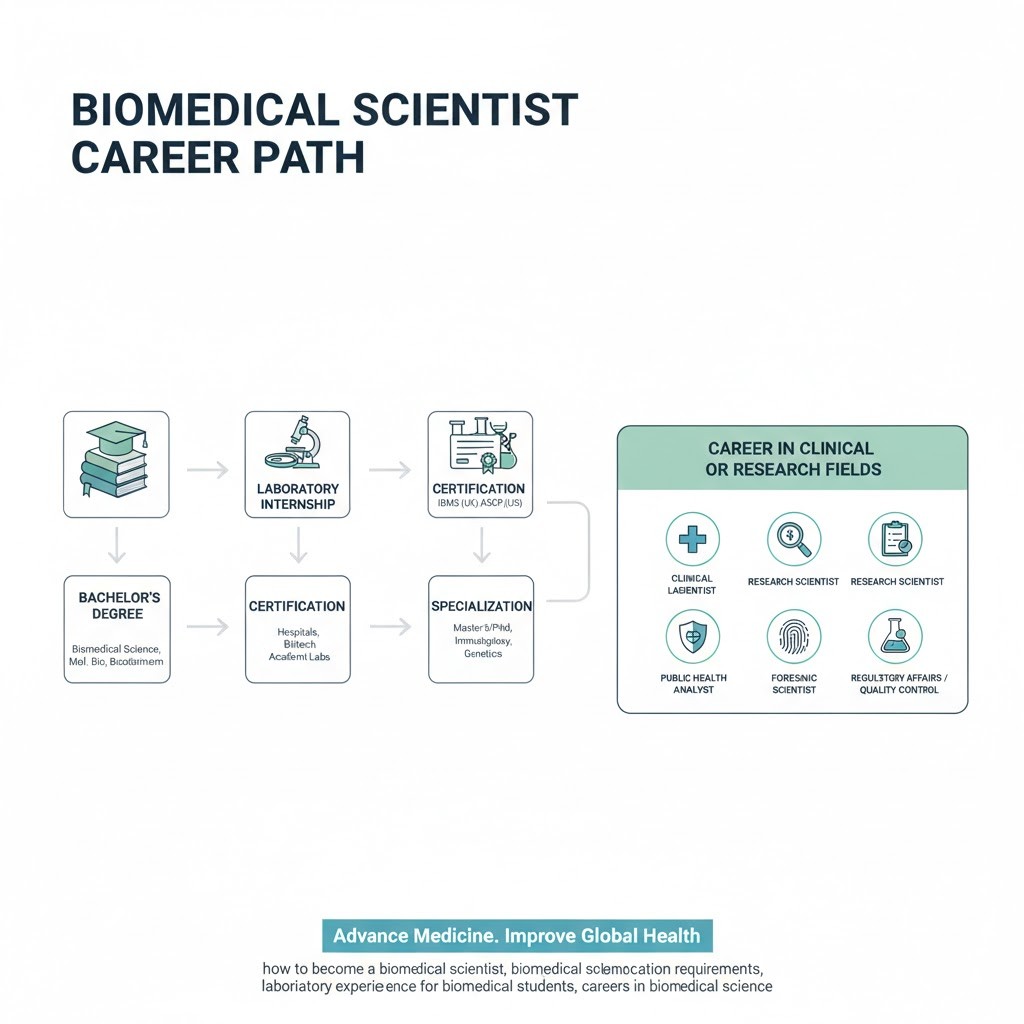

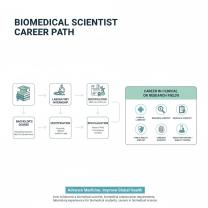
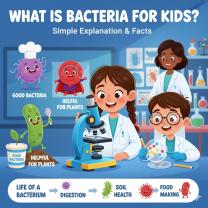
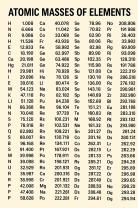

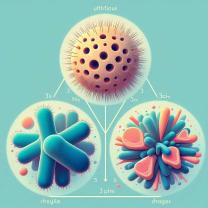
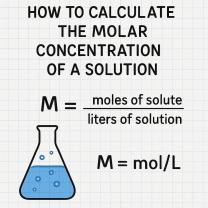




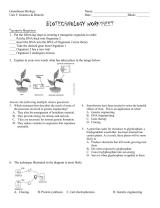

Clinical_Chem_Pro
on October 12, 2025I appreciated the distinction between a clinical scientist and a research scientist. Both are vital, but their day-to-day work is vastly different. Know your passion before committing!